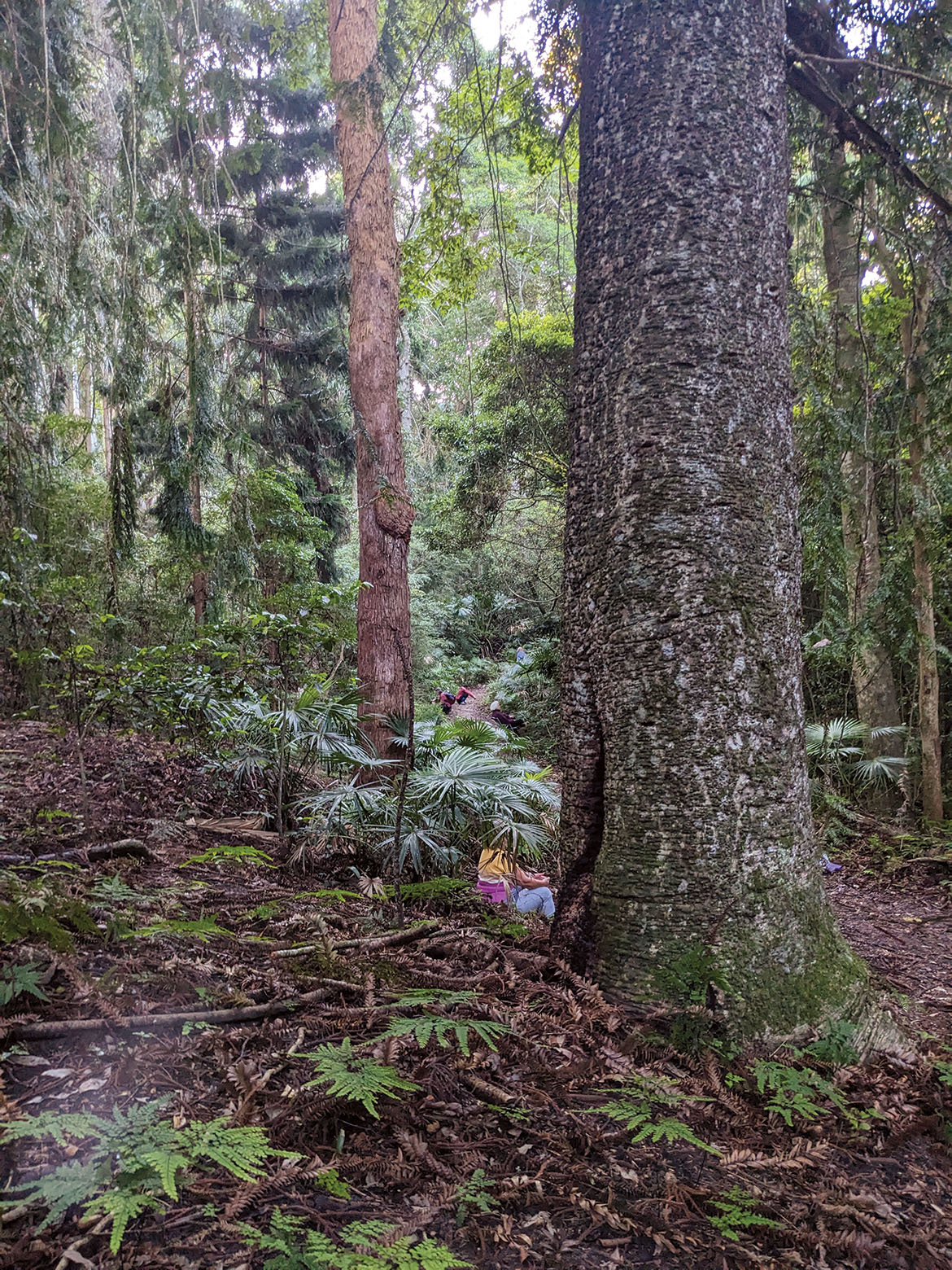
You walk into the forest; as you look around, you notice the deep greens of the foliage on the forest floor, the velvety browns of the leaf matter accompanied by the distinctive earthy scent. You hear the rustling of the leaves as a bird alights from somewhere above you. A gentle breeze passes through and the palm leaves almost appear to be waving at you. You feel a cool water droplet fall onto your skin as you disturb a branch still laden with dew. You feel your diaphragm and shoulder muscles relax as you exhale after a heady inhaled dose of eucalyptic air.
Many people enjoy regular bush walks or spending time in their local parks but this can sometimes be a rushed and perfunctory experience to reach the end destination (which could also be a metaphor for an approach to modern life!). When we give ourselves permission to slow down and be fully present with ourselves we are able to pay attention to all of our senses – including interoception – the signals and sensation from our internal organs which are often below our conscious awareness. Through gaining increased attunement to and understanding of these senses individuals may be able to better regulate their emotional and physical states. Engaging in forest bathing and other forms of nature connection can facilitate this process.
The term ‘Shinrin–Yoku’, or ‘Forest bathing’ was coined in Japan in 1982 as a response to the corporate working culture and the need to slow down and reconnect with nature. In the fascinating way of Japanese syllabaries, the characters for the word can be broken down into descriptions; the first character is composed of three trees and means ‘Forest’, the second character is two trees and refers to the interconnectedness of the forest and the third character denotes the luxury of being fully engulfed in the abundance that surrounds you.
Indigenous cultures world wide have of course lived with embedded reverence and intrinsic connection to nature for eons and it is only now that the evolutionary mismatch in which we live has led many of us to seek ways to traverse the sense of human–nature disconnect. Modern Western science is also generating a plethora of research pertaining to the therapeutic benefits of nature connection for physical and mental health in alignment with ancient wisdom leading doctors to ‘prescribe’ spending time in nature according to individual needs alongside other treatments and therapies they may already be engaging with.
Forest bathing is one practice which falls under the umbrella term of Ecotherapy along with animal assisted therapy, horticultural therapy, eco–art therapy, wilderness therapy and green exercise as well as more traditional talking therapy taken out of a clinic and into natural settings such as a forest, garden or beach. In essence it is ‘nature–based therapy’ and a practical application of eco–psychology in which nature becomes the ‘co–therapist’, aiming to be holistic in theory and practice to support individuals in dealing with physical and mental health challenges. More specifically Ecotherapy can be particularly supportive for individuals experiencing depression and anxiety as well as in overcoming grief, navigating life transitions, trauma and for those who wish to engage in personal development. It can take place individually or in groups. Healing and growth are fostered through interactions with nature with mindfulness–based approaches frequently incorporated into this work. Many people recognise that they feel more grounded and calm when they have spent time in nature, particularly when it has also involved ‘giving back’ for example when planting new trees or collecting rubbish (Think ‘Take 3 for the Sea’). Nature can provide a place where people can feel safe and held. Indeed, regaining our innate connection to nature brings us back to ourselves and can lead us to discover our ‘ecological–self’.
(even when you can’t get outside)!
Petrichor: The pleasant distinctive smell in the air before the rain begins to fall
Twevelet: Small leaf bundles snagged around river twigs after a flood
Hopliness: Changes in colour along the length of a stem of grass
Dr Carly Walker–Smith is a mother of two. She facilitates forest bathing and offers ecotherapy to individuals and groups. She has a background as a medical doctor specialised in psychiatry and psychotherapy in London, UK and trained in ecotherapy here in Australia. She is also a nutrition and lifestyle practitioner and is building a house from natural and recycled materials at Narara Ecovillage, where her clinic is also based. https://getgroundedhealth.com.au contact@drcarly.com.au
© Copyright Grounded Health 2024 | A BeanFarm Studio Website | Photos: Rainbow Folk Photography